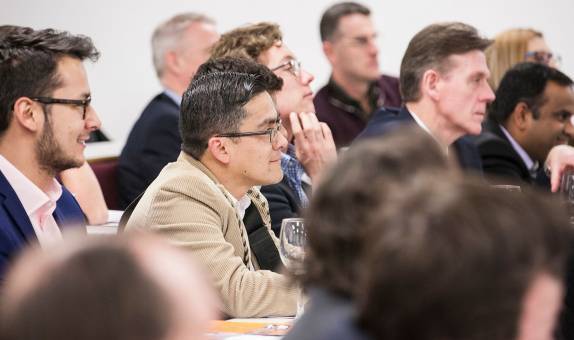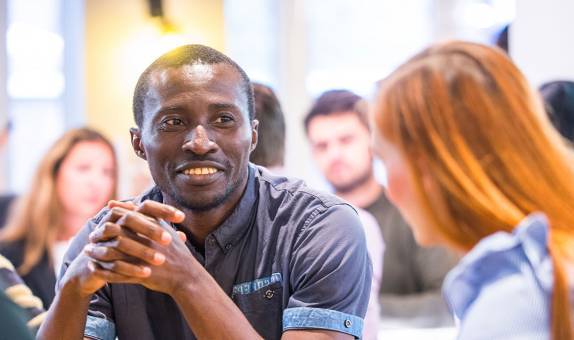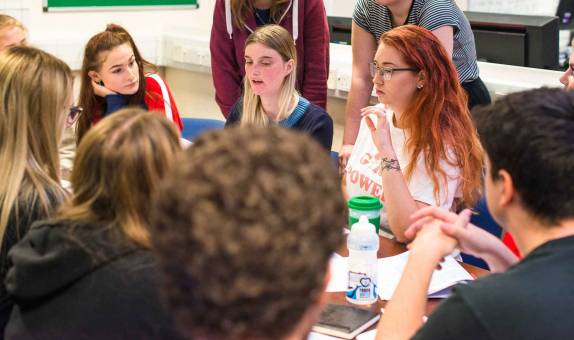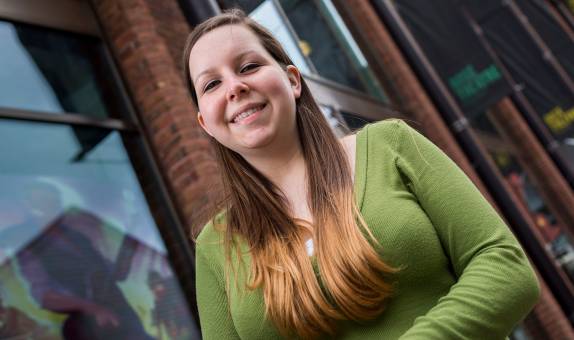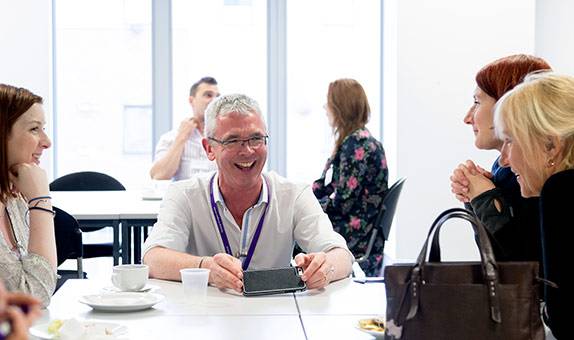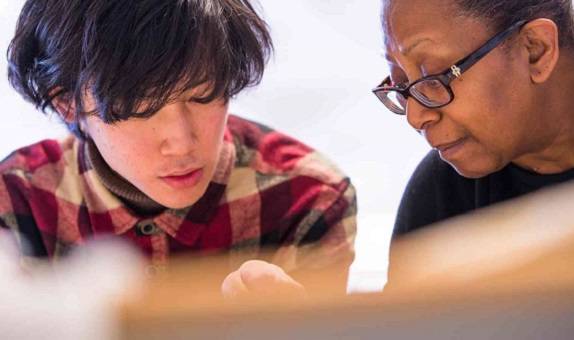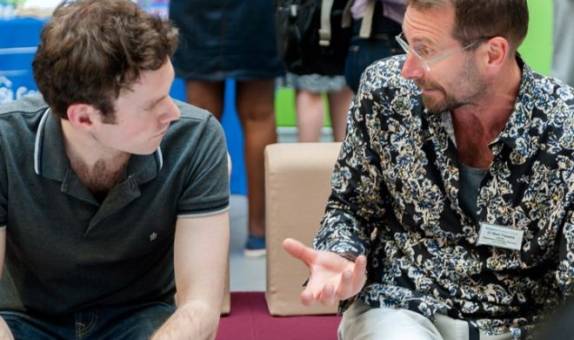Topic: Understanding the consequences for emotional wellbeing of long-term global virtual teams
Supervisor: Dr Christina Butler
It is widely recognised that teams embedded in a global virtual environment are more complex than their face-to-face counterparts in two important ways:
- A global environment increases diversity in terms of national cultures
- A virtual context increases communication challenges.
Consequently, individuals need to be especially skilled communicators who are always available but often isolated. The aim of this project is to investigate how the tension between flexibility and isolation impacts the emotional wellbeing of team members.
Topic: Understanding the experience of women in global virtual teams
Supervisor: Dr Christina Butler
It is widely recognised that teams embedded in a global virtual environment are more complex than their face-to-face counterparts in two important ways:
- A global environment increases diversity in terms of national cultures,
- A virtual context increases communication challenges.
While we understand some of the challenges women face in face-to-face environments (such as micro-aggressions and language style differences), we have little understanding of how women experience work life as a member of a remote, often global, team. The aim of this project is to investigate how women navigate work in this environment and to propose practices to enhance inclusion.
Topic: 'Engagement' at work: exploring self-image and work experience
Supervisor: Dr Stephen Gourlay
We all have a variety of images of who we are – our self-image or self-concept – which affects how we think, feel, and behave. The aim of this project is to identify the kinds of self-image active in different employment work contexts to explore the saliency of such self-images for the individual, the degree of temporal persistence and consequence of self-images for the individuals concerned, and to identify consequences for work activities. This is likely to take the form of detailed case studies of a sample of individuals in their wider (work and non-work) contexts.
Topic: Experiencing, contesting and regulating precarious work
Supervisor: Dr Enda Hannon
Precarious forms of work and employment have become increasingly pervasive over the last two decades, with profound implications for workers' economic livelihoods, security and experience of work. This project will examine workers' experience of precarious work and labour market actors' efforts to contest, mitigate and regulate this phenomenon. The PhD research would contribute to these objectives utilising quantitative and qualitative research methods with a focus on particular national, regional or sectoral contexts.
Topic: Trade unions and state Industrial strategies in current times
Supervisor: Dr Enda Hannon
Industrial strategy returned to the forefront of national political and policy agendas following the global financial crisis of 2008. There have been calls for greater trade union input into the formulation and implementation of state industrial strategy however little is known about their capacities and approaches in this regard. This project will explore these issues using mixed methods drawing on primary and secondary data.
Topic: How to create and sustain high performance
Supervisors: Professor Alex Hill and Dr Ki-Soon Hwang
Organisations are continually looking for ways to improve their performance. However, very few have managed to do this. Which is why the average lifespan of a US S&P 500 company has fallen by 80% in the last 80 years (from 67 to 15 years), and 76% of UK FTSE 100 companies have disappeared in the last 30 years. This research project will try to understand how some organisations have managed to go against the grain, and have managed to build and evolve an organisation over time, so that it is able to sustain a high level of performance for thirty years, or more. The purpose of this project is to then develop concepts, ideas, tools and techniques that other organisations can then use, to help them develop and sustain a high level of performance too.
Topic: New creative/entrepreneurial ways of working/organising from organisations and communities in Africa, Latin America and Europe
Supervisor: Dr Miguel Imas
This project explores how communities and organisations in Africa, Latin America and Europe re-imagine work and organisation from decolonial/postcolonial approaches, adopting more creative practices to sustain life.
Topic: Non-linear career trajectories
Supervisor: Dr Sarah Otner
The employment path wherein an individual joins an organisation as a trainee and progresses up a hierarchy until retirement has shifted from the modal model to a rarity. Instead, careers now are likely to include lateral moves, pauses or breaks, returns/re-entry, and co-recruitment or cluster hires. This project will investigate the drivers and the consequences of this non-linear working life.
Topic: The evaluation of elites
Supervisor: Dr Sarah Otner
Sociology has long recognised that the top social status tier – whether classified by talent, resources, of performance – experience the world differently than do the majority. Until recently, there was general consensus that the elite/mainstream divide was the only threshold that mattered. Now, research – driven by this project – will examine categorization, evaluation, and other status dynamics within the upper echelon.
Topic: Inclusive work climates and organisational citizenship behaviours
Supervisor: Dr Anna Paolillo
This project aims to explore how shared perceptions of diversity and inclusion can have an impact on extra role behaviours (namely, organisational citizenship behaviours or OCB). Although those behaviours are discretionary and not explicitly recognised by the formal reward system, they have been demonstrated – among other positive outcomes – to constructively challenge the organisational status quo, making innovative suggestions for change. The influence of climates for diversity and inclusiveness on OCB will be investigated, considering other intervening variables at the organisational and individual level, such as organisational commitment, empowerment, perceived organisational support and personality variables. This project is likely to take the form of survey questionnaires as the main method of data collection, adopting a multilevel methodology.
Topic: Gender inequality in pay
Supervisor: Dr Jean (Qi) Wei
Gender inequality in pay is still among the most pressing challenges in society. Research on the gender way gap has unearthed inequality barriers at the job, group and organisational levels of analysis. However, research rarely extends beyond the organisational level. This project aims to examine how the broader social context affects gender pay inequality and explore how the unfair treatment impacts on women's lives (such as their health, careers, and relationship).
Topic: Mosaic careers in the context of freelancing
Supervisor: Dr Jean (Qi) Wei
Unusual forms of work arrangement and organisation have not played a major role in the current HRM research, even if they have gained some importance in practice. This project concentrates on temporary organising in the context of freelancing. The overall aim is to explore the complexities involved in how freelancers understand and experience the mosaic careers which are made of fragments, and have limited transparency, predictability, or procedural justice.
Topic: Demographic diversity and deep-level diversity as moderator variables in work psychology
Supervisor: Dr Hans-Joachim Wolfram
Demographic variables (such as gender and ethnic background) and deep-level variables (such as self-concept and identity centrality) may influence how people experience and respond to affective events. A range of positive and negative events as well as various outcome variables fit with this research area. A current project, with Dr Niki Giatras of Kingston University, examines harassment experiences and indicators of mental health. Due to the, partly, exploratory nature of the research, combining qualitative and quantitative approaches appears to be promising. Experimental designs (such as vignette studies) may be helpful as well.



